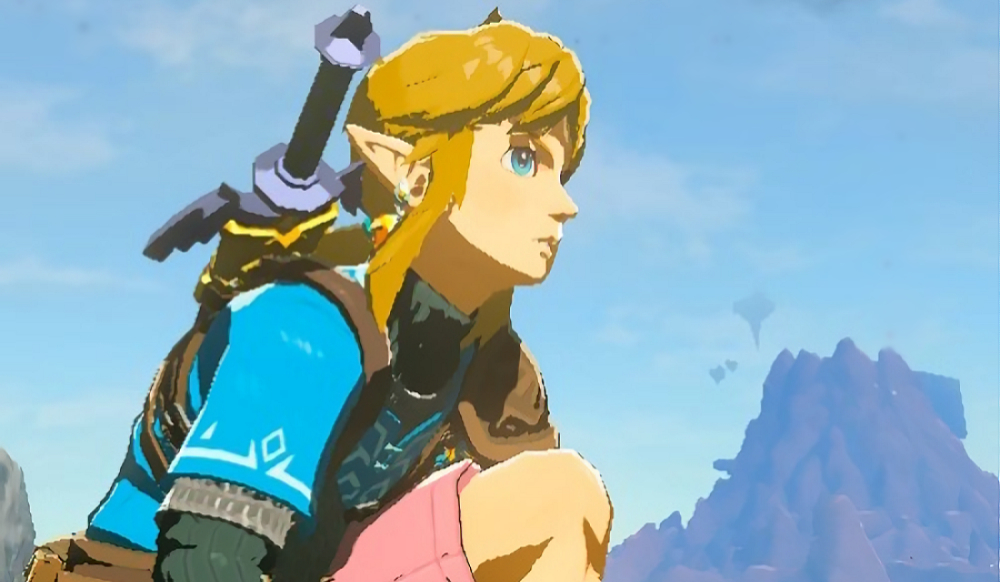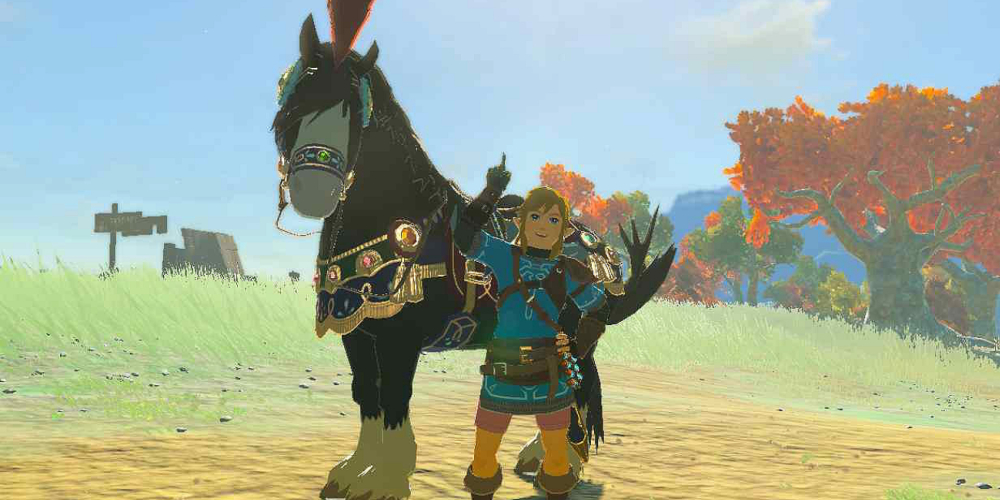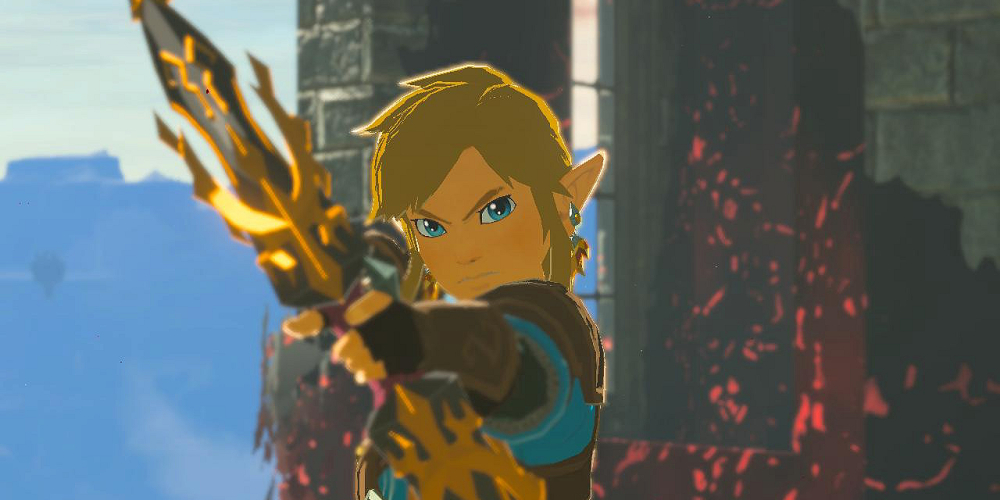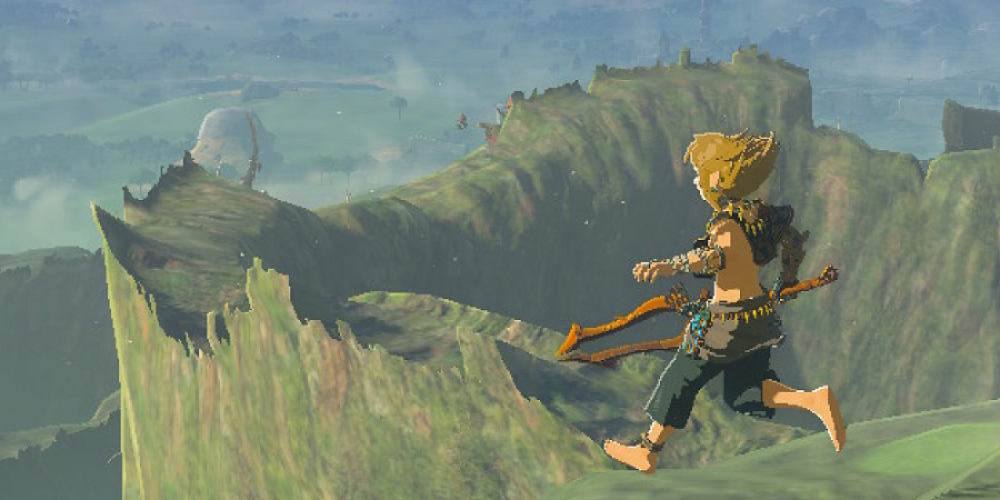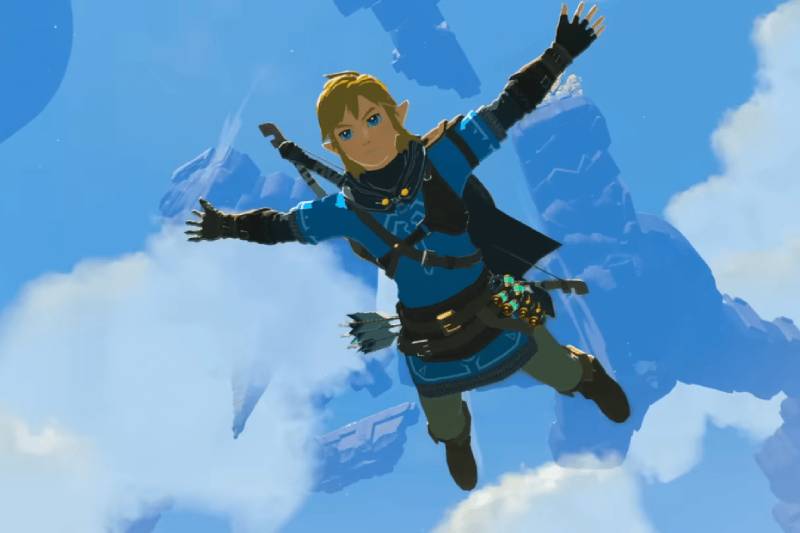
The Legend of Zelda has echoed its legacy throughout the gaming industry. Because of this, countless games ranging from indie to mainstream have taken inspiration from the Zelda franchise. However, you may find that some of these games are better than the average Zelda game for your gaming needs. For this top ten list, let’s uncover other action-adventure games that are reminiscent of one of the legendary series.
10.) Darksiders

War
What I’d like to call a heavy metal take on The Legend of Zelda series, Darksiders draws strong inspiration from the legendary Nintendo franchise, such as dungeon crawling environmental puzzles, pace, and problem-solving. Unlike Zelda’s vibrancy, this game is set in a post-apocalyptic version of Earth where angels and demons fight over world domination. In between the conflict, players will take the role of War, one of the horsemen of the apocalypse and the protagonist. Much like Zelda, you’ll follow War traverse a hub-based overworld connected to other areas filled with dungeons, puzzles, respective items, and focal boss encounters. Akin to Link’s journey, War progresses by obtaining certain tools that unlock new areas that allow him to solve puzzles. The Crossblade, for instance, is a ranged weapon War acquires early in the game to maneuver through dungeons and defeat enemies like The Jailer and Tiamet. Similarly, in reoccurring Zelda titles, Link receives a Boomerang - a ranged weapon that also helps him defeat specific enemies or advance through a dungeon.
Both games emphasize exploration and light RPG mechanics. Puzzles in both will often involve switch-activation, platforming, and utilizing new weapons and items in clever ways, which creates a satisfying gameplay loop. However, their differences are just as pronounced - Darksiders adopts a grittier, dark setting that’s inspired by biblical themes, which starkly contrasts with Zelda’s whimsical tones. Link is always portrayed as an idealistic silent protagonist who is perceived as an underdog by some, and by others a valiant hero - but War is a a brooding antihero. What sets Darksiders apart from Zelda even further is the combat, which, if anything, borrows from games like God of War, with fast-paced brutality and heavy combos. Zelda’s combat tends to be simpler with a greater focus on enemy patterns and strategy. In short, Darksiders mirrors Zelda’s structure to some extent, reimagining the classic games with darker, edgier, mature elements.
Darksider's Trailer
9. Death's Door

Discover a world full of wonderful characters.
Death’s Door wears its Zelda inspiration like a badge of honor, but it feels fresh and not derivative. Release in 2021 by Acid Nerve, this Indie action-adventure puts the player into the pint-sized body of a feathered protagonist, The Reaper - a silent, nameless crow wielding a sword. The Reaper navigates a world filled with lost spirits, ancient secrets, and bosses that wouldn’t look out of place in a classic Zelda title. Similarly to the Zelda series, Death’s Door revolves around exploration, item-gated progression, and cleverly designed overworlds.
Death’s Door’s combat is tight and snappy, blending sword slashes and ranged magic, much like how Link balances melee and magic in A Link to the Past. There isn’t any hand-holding, Death’s Door, like the earlier Zelda games, expects players to pay attention and take risks by learning through trial and error. While some of Death's Door's gameplay feels familiar, the tone is polarizing, sweeping hopeful heroics for quiet melancholy. There are no traditional dungeons as you’ll find in Zelda, but the way areas are interconnected and packed with secrets echoes the Zelda-esque spirit. And like any good Zelda game, boss battles can highlight the experience.
Death's Door Trailer
8. Immortal's Fenyx Rising

Discovery a vast open world filled to the brim with content.
Immortals Fenyx Rising is Ubisoft’s most direct nod to The Legend of Zelda: Breath of the Wild - and it doesn’t try to hide it. From the moment you step into its sun-drenched open world, the comparisons are impossible to ignore. Wide-open landscapes filled with secret, stamina-based climbing, and physics-driven puzzles echo Nintendo’s newest formula in the Zelda franchise. Instead of ancient Sheikah tech and all of Hyrule’s mortal beings, the game is centralized around Greek mythology and the immortals.
You play as Fenyx, a (sort of) customizable hero tasked with saving the gods from the wrath of Typhon. Players can choose to make Fenyx male or female. Similarly to Link, Fenyx gains abilities to solve puzzles, explore, and fight - many of which take place in Vaults of Tartarus, which feel like a twist on Breath of the Wild’s Shrines. The Vaults have platforming challenges that feel pretty rewarding, and it gives you a good grasp of the game’s mechanics. Combat in Immortals Fenyx Rising is a lot flashier and combo-driven compared to any Zelda game, it’s closer to the Assassin’s Creed games or God of War, but it still maintains that balance between tools and timing. Gliding, taming mounts, and picking up random quests while exploring all feed into the same open-world adventure aspects that made Breath of the Wild so beloved.
Immortal's Fenyx Rising Trailer
7. Okami HD

A fantastic tribute to Japanese culture.
Ōkami HD is arguably the closest to a Zelda game that didn’t come from Nintendo on this list. The player follows Amaterasu, a sun goddess in the form of a valiant white wolf on a treacherous quest to cleanse the corrupted land of Nippon. Structurally, it plays like Zelda. With encouraged exploration, dungeons with corresponding items, and bosses that require a mix of logic and creativity to defeat. Like Link, Amaterasu gains her abilities as the game progresses. However, instead of handy items like the Hookshot, she uses the Celestial Brush, a mythical paint technique that restores color and life to Nippon. The Celestial Brush is also used combatively and helps Amaterasu solve puzzles.
The Japanese folklore and the symbolic nature of the Celestial Brush give Ōkami HD a distinct vibe of its own, but it still scratches my Zelda itch. I love being able to master the limited items and abilities at my disposal as both franchises do for me. Aesthetically, Ōkami HD sets itself apart from Zelda with a stunning ink-wash art style that looks like a living painting. Where Zelda usually leans into medieval fantasy or cel-shaded whimsy, Ōkami HD feels more like a magical Japanese folktale brought to life.
Okami HD Trailer
6. The Swords of Ditto: Mormo's Curse

Become the hero of legend!
The Swords of Ditto: Mormo’s Curse is a cartoonish, pastel-laden RPG that is inspired by the Zelda series. The protagonist is the feeble-minded Sword of Ditto, on the path to destroy the evil witch, Mormo. Like the older Zeldas, the game features a top-down perspective, environmental puzzles, dungeons with quirky enemies, and item-gated progression. The world changes with every hero, but at its core, it’s reminiscent of the legendary series.
Where it differs most is its roguelite design. When you die, you restart the story in a new timeline - with a new hero, refreshed loot, and a reshuffled world. This mechanic adds a layer of urgency that isn’t typical in a Zelda game, but it still manages to be fun without punishing you. The combat is snappy but varied, and the weapons can range from golf clubs to vinyl records, giving it a more playful tone than Hyrule’s seriousness. The art and humor lend to modern indie charm, with self-aware dialogue and silly characters. While the Swords of Ditto doesn’t match Zelda in scale or depth, it incorporates adventure, growth, and charm that attract Nintendo fans.
The Sword's of Ditto: Mormo's Curse
5. Fable

Humble beginnings.
In Fable, you play as a child whose village is ransacked and destroyed, and from there, your story unravels into a classical hero’s adventure. The world is unexplainably cozy to me, but it’s also dangerous. There are strange creatures, quaint towns, hidden caves, and moral choices that impact how NPCs see you. Unlike Zelda, there are more consequences to your actions. It doesn’t have the same puzzle-heavy dungeons that Zelda is known for, but there’s still a lingering Zelda feel as you grow stronger and simultaneously unlock new areas. Where Fable sets itself apart is the way it handles choice. You’re not just a hero - you are who you choose to be. You can decide to be a saint or a menace, and the game will reflect your decency or degeneracy in how your character looks and the way the world responds to you. Protagonist variation is something Zelda rarely plays with; Link is perceived at a constant, and it’s usually positive, you can’t control how others interact with him or how he interacts (to a large extent).
Fable Trailer
4. Shadow of the Colossus

The bigger the better.
Shadow of the Colossus feels nothing like Zelda on the surface, as there are no towns, dungeons, or NPCs to send you off on a side quest. But the feelings are similar - the emphasis on ancient bygones and the mysterious tone remind me of Zelda. You play as Wander, a young boy on a quest to bring a girl back to life by taking down sixteen towering colossi scattered across a vast, barren landscape. You’re left to your own devices - you, your steed, the ancient sword, a bow, and whatever’s waiting over the next hill. You start with just the bow, in a Zelda game that sounds like a nightmare, but fortunately, in Shadow of the Colossus, you have unlimited arrows at your disposal. It’s minimalist, which isn’t as common in a Zelda game, but its atmosphere gives me a familiar push to explore. Each colossus fight is a puzzle in itself - you have to figure out how you’re going to climb them and where their weak points are. The daunting stature these giants take reminds me of a a lot of bosses in Zelda, not just in their height or size, but fixating on specific parts of their bodies to take them down. It’s also one of those games that pushes players to interpret things on their own. There’s little dialogue and no companion to echo the narrative. Instead, it’s quiet and meditative - this game relies on its atmospheric tone to tell the story - we should see that more often in video games today.
Shadow of the Colossus Trailer
3. Dark Souls

Accumulate souls in this undying masterpiece!
Dark Souls 1 is grim, punishing, and left a mark on the gaming industry with a new standard in what challenging means. Zelda games can be challenging, but I can say with certainty that there’s never been a time when I second-guessed if something was almost impossible. Even though there are obvious differences, Dark Souls shares Zelda’s methodical exploration, hidden secrets, and world design. Like the older Zelda games, Dark Souls gives you freedom - but not the kind most players are used to. While both series’ overworlds are vast and interconnected, they are not open-world. Neither game put the player into a single, sprawling area. The world has distinct zones, such as the Undead Asylum or the Undead Burg that are accessible through passageways, bonfires, and world transitions. Discovery is more brutal - sometimes, you die multiple times to figure out where you should be heading next, something unexpected in a typical Zelda title. But everything difficult about Dark Souls 1, or any Soulsborne title, has always left me feeling rewarded when I complete them. Lordan, like Hyrule in some Zelda games, can feel mysterious - its architecture and design tell a silent story through item descriptions and cutscenes. Despite their contrasts, both leave you with a sense of reverence for their worlds.
Dark Souls Trailer
2. Warden: Melody of the Undergrowth

Endless exploration
Warden: Melody of the Undergrowth has lush forests, emphasizes exploration, and fun puzzles. To me, it feels most reminiscent of Ocarina of Time and Wind Waker if I had to compare it to specific Zelda titles. Graphically, it captures Wind Waker’s cel-shaded charm - even the characters look like they’d fit in the toon Zelda games. You play as a young warrior lost in an overgrown, magical forest. There’s a mysterious atmosphere, from the ruins you can explore to the spirits you meet. Similarly to Zelda, you gradually gain new abilities, like fire control or rock-busting strength, both unlock new areas and secrets. The cutscenes blend nicely throughout the game and the pacing makes completing objectives more fun. The combat is simple yet satisfying, with an array of unique enemies that challenge your creativity when it comes to problem-solving and classic melee combat. And the vibrant visuals fit the game’s fairytale-like tone. Playing Warden: Melody of the Undergrowth, you can feel the passion that went into creating this game.
1. Undertale

"You are filled with determination".
Like Zelda, Undertale encourages the player to explore its world. Undertale has countless secrets and hidden lore scattered across the Underground, and sometimes you have to (literally) stop and smell the flowers to learn more about its world. Even though Undertale doesn’t have dungeons or temples as Zelda does, there are areas in the Underground that are interconnected and unlock as you progress the story. Where Zelda expects you to slash your blade at any and every enemy you encounter, Undertale is the opposite and challenges you to view RPGs differently. You can fight, talk, spare, or flee from monsters. Almost all of your choices matter, and the game will remember your sins, even if you create a new save file. The weight of Undertale’s consequences taps into a similar feel that Majora’s Mask carries but reimagined in a playful, sometimes heartbreaking way. Despite its silliness, Undertale is profound. Its messages are simple, but its execution makes you think about your actions, and why you do them. It’s hard to compare anything directly to Zelda. However, sometimes you’ll encounter games similar enough to scratch a familiar itch, whether it is combat or atmosphere, but still manage to be different enough to experience something new.
Undertale Trailer



